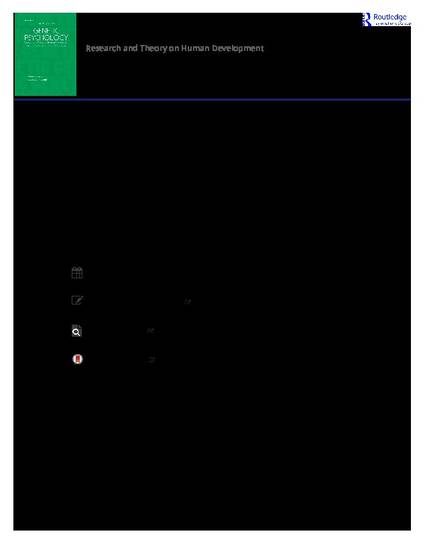
Article
Bullying Victimization and Friendship as Influences on Sleep Difficulty among Brazilian Adolescents
The Journal of Genetic Psychology
(2021)
Abstract
Bullying victimization is associated with poor health-related outcomes, including sleeping problems. The present study aimed to investigate the impact of bullying victimization on sleep difficulty, and the moderating effect of the number of close friends on this association, also exploring dif- ferences across genders. The study was based on a nationally-representa- tive survey on adolescent health conducted in Brazilian schools, involving a total of 109,104 participants, enrolled at the 9th year in 2012. The meas- ures used in the analysis included socio-demographic characteristics, bully- ing victimization, sleep difficulty, and number of close friends. In the multilevel models, reporting more peer victimization was associated with more sleep difficulties (b 1⁄4 .18, t1⁄450.17, p < .05), with girls reporting more sleep difficulties in association with peer victimization than boys. Reporting having more friends was inversely linked to sleep difficulties (b 1⁄4 .08, t 1⁄4 15.26, p < .05), and the association between peer victimiza- tion and sleep difficulties was significantly buffered by the number of friends. Moreover, in a three way interaction, there was a marginally signifi- cant difference in the effect of friends on the link between victimization and sleep difficulties between boys and girls (b 1⁄4 .02, t1⁄41.86, p 1⁄4 .06), with the buffering effect of friendships being negligible among girls as opposed to boys. The results indicate a significant association between bullying victimization and sleep difficulties, which seems to be more pro- nounced among girls, also suggesting that the number of close friends may buffer this association, mainly for boys.
Disciplines
Publication Date
2021
Citation Information
Jonathan Bruce Santo. "Bullying Victimization and Friendship as Influences on Sleep Difficulty among Brazilian Adolescents" The Journal of Genetic Psychology (2021) Available at: http://works.bepress.com/jonathan_santo/62/
